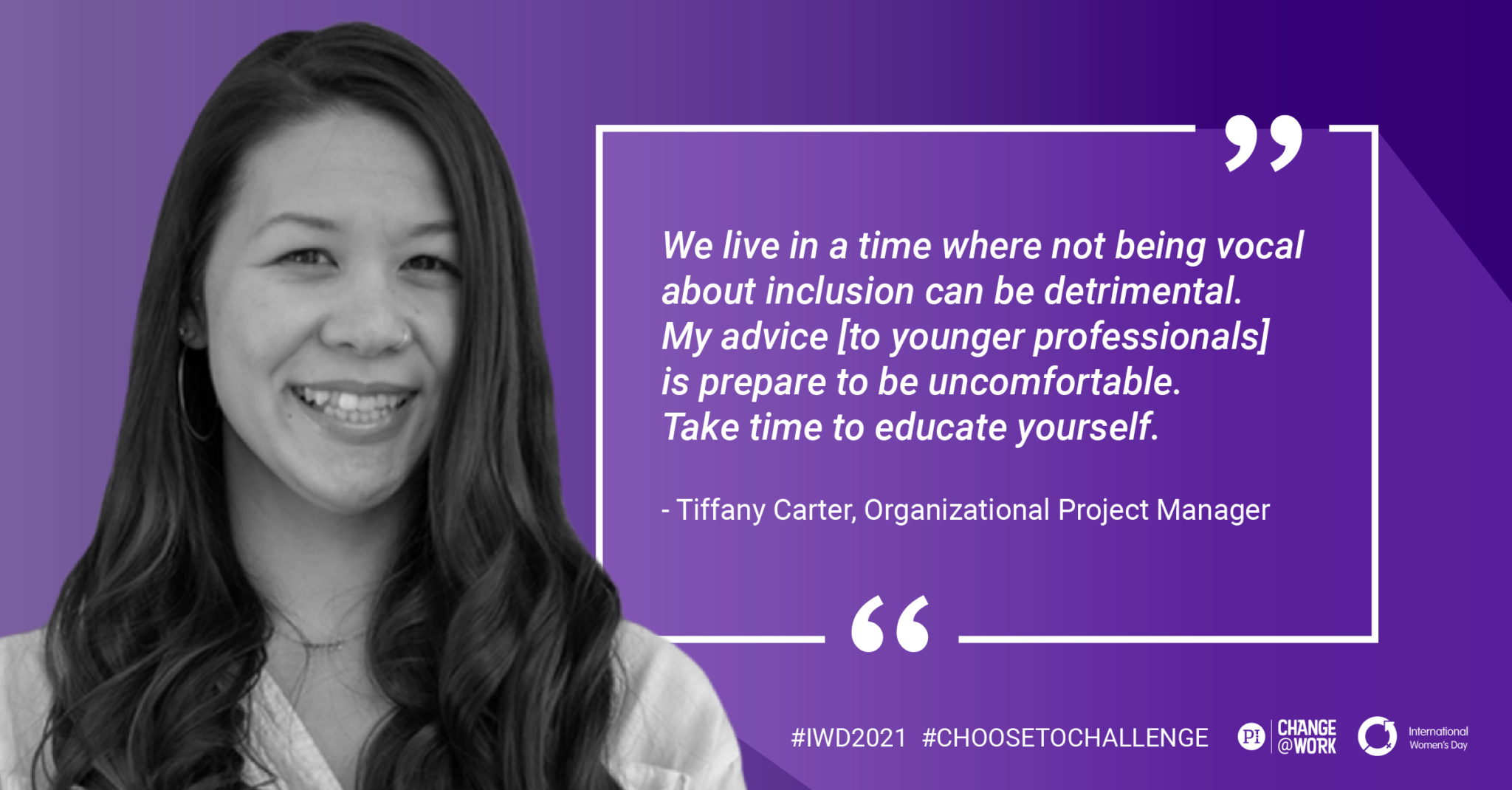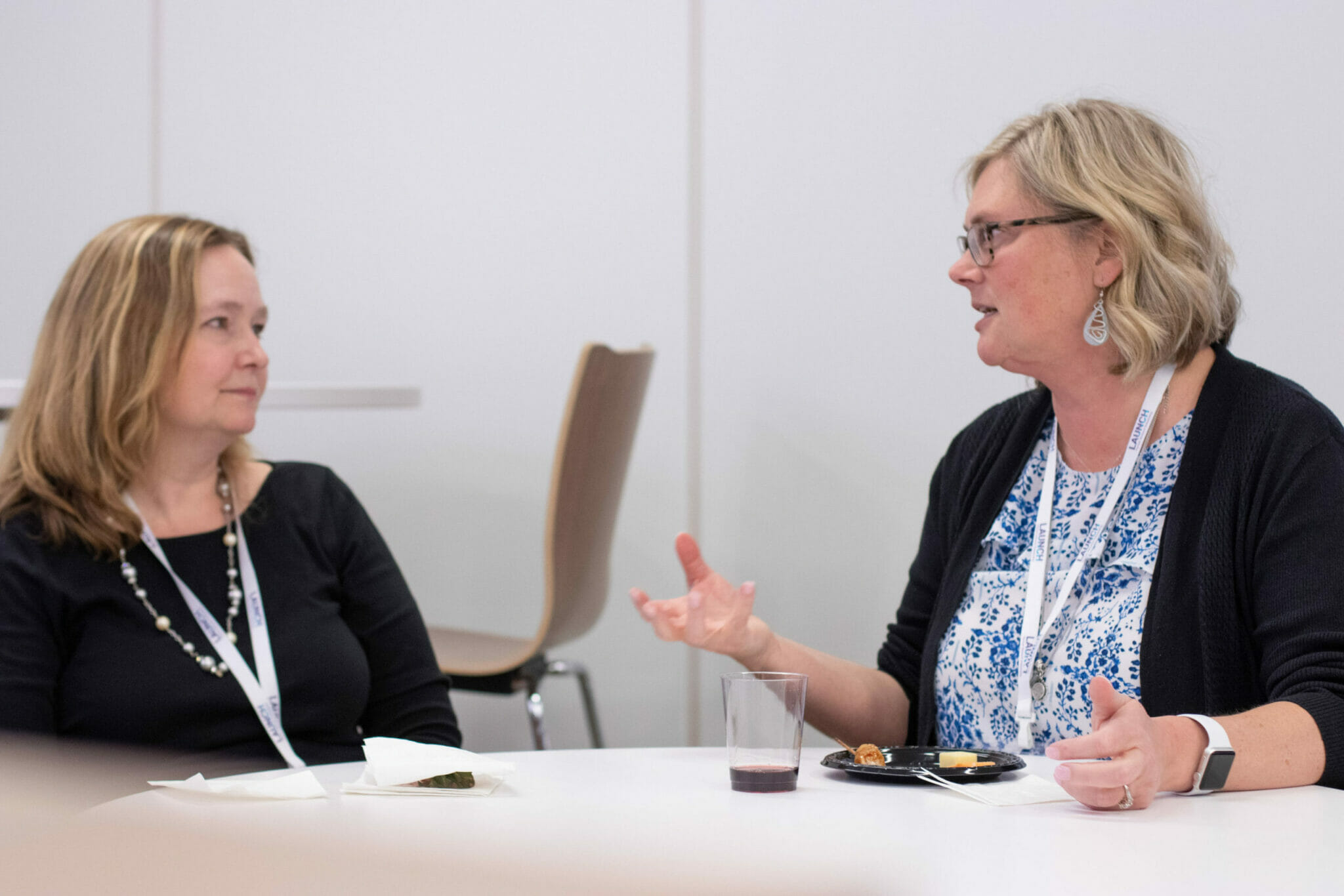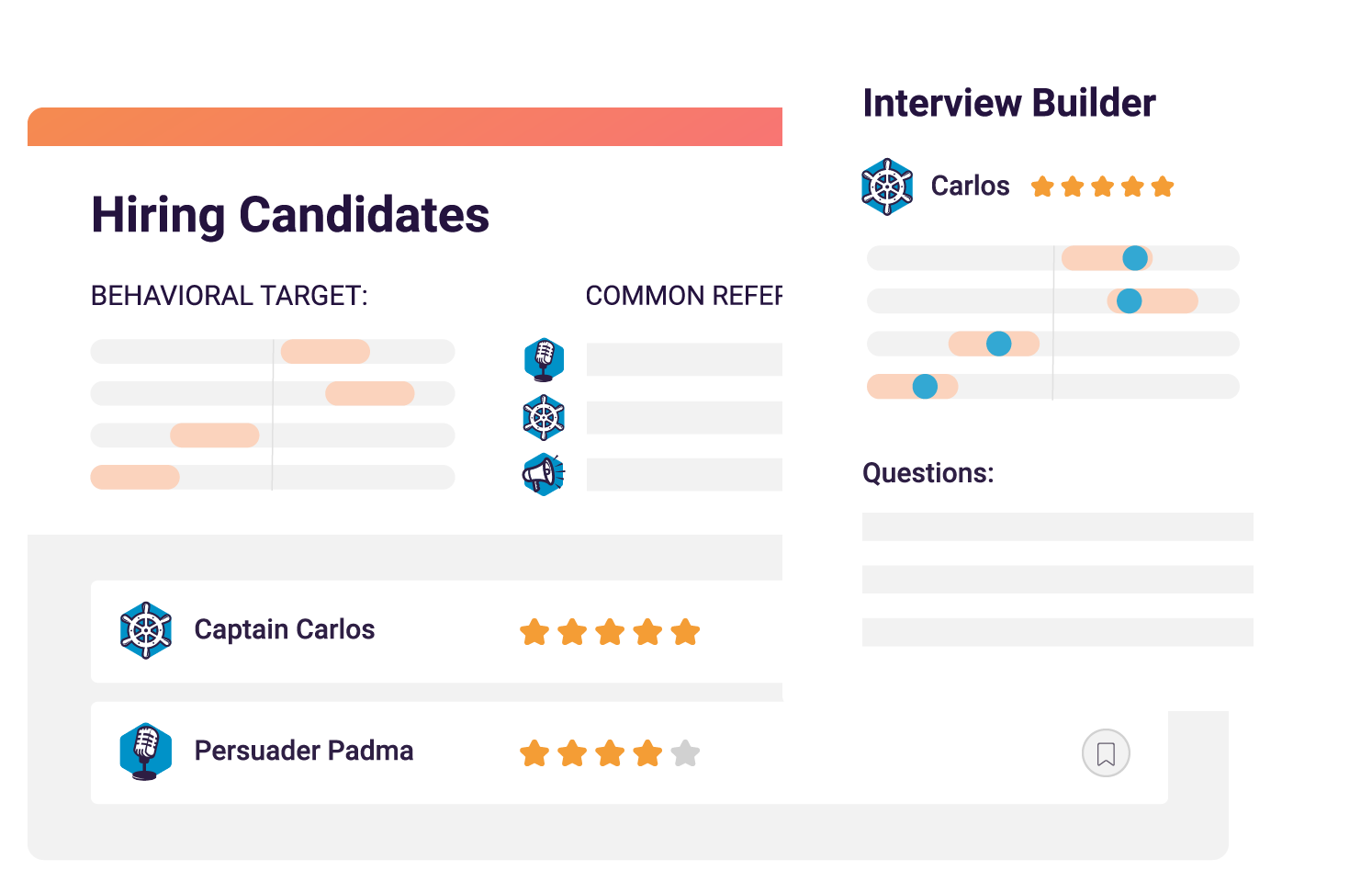Throughout International Women’s Month, we’re sharing a new blog each Monday showcasing the careers and accomplishments of women at PI.
Tiffany Carter is an Organizational Project Manager at The Predictive Index, and a firm believer that truly impactful change doesn’t come easily.
Technically, most of the key initiatives (KIs) Tiffany spearheads have a quarterly shelf-life. Goals and metrics are measured within a three-month timeframe, and she helps KI stakeholders manage scope, resources, and expectations accordingly.
But she’s keenly aware of the fact that some of her most important work extends well beyond any quarterly window, regardless of the on-paper parameters. And it’s with that longer view that she approaches Change@Work, a program that’s evolved into an organizational North Star, as well as her broader role as a leader.

Awareness and self-education go hand in hand.
Talk with Tiffany for five minutes and you’ll understand why she’s so respected by her peers, not only as someone with a true care for social justice, but for how she personifies self-awareness and talent optimization.
Prior to joining PI, she worked for a PI client, so she has a unique perspective that makes her empathetic to customer pain. That same experience allows her to zoom out and recognize where we—as a company and as individuals—have made strides, and where we can continue to progress.
We talk a lot about awareness at all levels (you+team+strategy). Tiffany embodies it. She’s quick to acknowledge her own biases, and leads with an emphasis on an education of self.
“It’s all about acknowledging my own responsibility,” she says, when asked to reflect on who or what she chooses to challenge. “What’s my role? What lies with me versus someone else? It’s not anyone’s responsibility to teach someone else.”
She walks that walk, too. She recognizes that being socially conscious and addressing your own biases aren’t mutually exclusive priorities.
“As a woman of color, my biases still exist,” she says, and she’s reflective about social cycles like gentrification, which can transcend race or gender in the pain it inflicts.
Where many people might approach decisions like a home purchase based solely on self-interest, she’s thoughtful and considerate of the broader impact. And it’s through this same lens that Tiffany views many of her most important workplace endeavors.
Change@Work beyond the immediate moment
Tiffany speaks with pride about the Change@Work foundation that’s been laid over the past nine-plus months. The initiative may have formally begun during a summer of social and economic unrest, but she notes that the PI community sprang to action in a variety of ways, many of them organic, following the killing of George Floyd by a Minneapolis police officer.
She was moved by the combination of solidarity and humility she saw from leadership. The company publicly supported Black Lives Matter. CEO Mike Zani joined an all-company webinar with an “I Can’t Breathe” Zoom background. More recently, many fellow PIoneers have stepped up in support of the API community in the wake of startling violence against Asian-Americans.
Yet even through this support, colleagues readily admit there is much work to do. She knows that this sort of open-mindedness doesn’t prevail at just any company. It set a certain tone for the rest of the organization during an extremely trying year.
“We’ve done really well—we had RIFs, and we’re in a great spot in terms of what our teams are doing. We’ve been in a really great situation with all these trials that have been thrown at humankind.”
But there’s plenty more opportunity to continue building.

Modeling the head and the heart
There are plenty of examples of progressive career pathing being forged at PI. Tiffany cites the engineering team, which overhauled its recruiting strategy and invested in on-the-job skill development. In doing so, the team has paved opportunities for more women, people of color, and those who lack the traditional engineering background. In the process, Engineering has also expanded its talent pool beyond the New England region.
Far from finished, Tiffany says modeling this mindset is a fantastic place to start.
“Our opportunity stems from the fact that some departments have great programs for hiring someone without that full briefcase.”
She readily acknowledges that Engineering—traditionally white-male dominant—was a fairly obvious place to drive change. That’s not to discount the importance of that progress at all. If anything, that team’s creating a blueprint other teams can follow. They’re helping embolden people to seek jobs they can thrive in, regardless of resume.
“They’re giving people skills when they already have values. [Often] men are willing to apply to things they don’t necessarily fit the bill for, but women are less likely to [apply for]—how do we bridge that?”
In a phrase? Pay it forward. There are a number of leaders at PI (and beyond) who inspire Tiffany because they think about the intrinsic value people can add, as opposed to what elements of a job description they might lack.
“It’s the leaders that take the time to connect, that show vulnerability. We talk a lot about how leaders can come from anywhere. The true leaders identify opportunities—reaching out to people who they think might be a good fit. Maribel Olvera (SVP of Operations) and Victoria Nichol (VP of Product Marketing) come to mind.”
An evolving culture of allyship
Through these models and the conversations they’ve led to, Tiffany affirms that PI has enhanced its environment. The company is thinking more about allyship and creating a workplace of psychological safety than ever before.
Seemingly small actions, like adding pronouns to email, Slack, or Zoom, can go a long way toward promoting inclusivity. Job descriptions have been adjusted, no longer listing formal education as standard requirements. And the community has become more broadly aware of word choice. People think twice before addressing a group as “you guys,” even if that’s a phrase they’ve been saying without ill intent since childhood.
It’s only through those uncomfortable moments that a culture can mature. And true to her mantra—that it’s on each individual, first and foremost, to embrace evolution—Tiffany would impart similar wisdom to younger professionals.
If you truly value inclusivity, you can’t shy away from the work required to achieve it. Asked what advice she might give younger people concerned about challenging workplace status quos, she exhibits that same candor:
“We live in a time where not being vocal about inclusion can be detrimental. My advice is prepare to be uncomfortable. Take time to educate yourself.”
That’s coming from someone who lives it and owns it. By sweating the Change@Work details, modeling inclusive behavior, and challenging her own biases along with those of others, Tiffany is one of many women at PI paying it forward on the daily.








